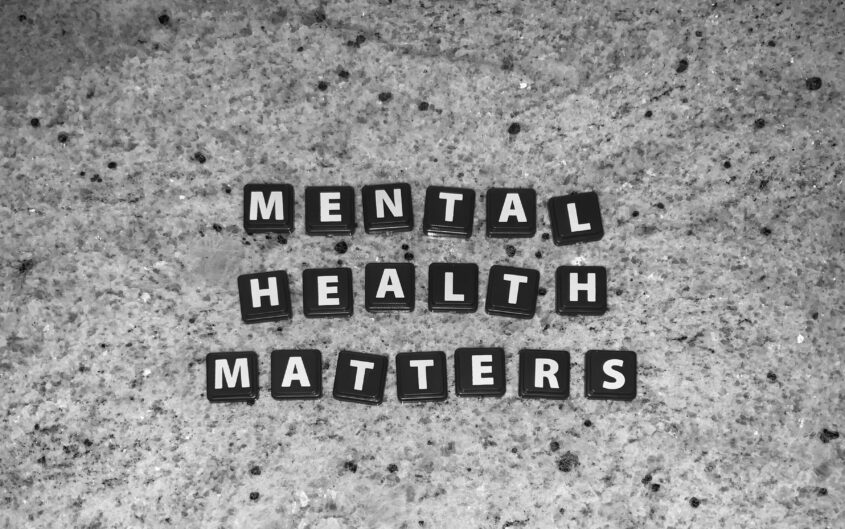The Impact of Exercise on Mental Health: What Science Says

The Impact of Exercise on Mental Health: What Science Says
Regular physical exercise has long been acknowledged for its numerous benefits to physical health. However, in recent years, scientific research has shed light on the profound impact exercise can have on mental health as well. The connection between exercise and mental well-being is a fascinating field of study that continues to garner attention from researchers and health professionals alike.
This article explores the science behind the relationship between exercise and mental health, delving into the psychological, neurochemical, and cognitive benefits of physical activity. Additionally, it examines how exercise can potentially treat depression and anxiety, reduce stress levels, improve sleep quality, and contribute to overall mental well-being. Whether you are seeking ways to enhance your mental health or are simply curious about the scientific evidence supporting the exercise-mental health connection, this article aims to provide valuable insights and practical recommendations for incorporating exercise into your mental health routine.
1. Introduction to the Relationship between Exercise and Mental Health
When we think of exercise, we often associate it with physical health benefits like weight loss, increased strength, and improved cardiovascular health. However, the impact of exercise goes beyond the physical realm. In recent years, scientific research has shed light on the powerful relationship between exercise and mental health. The way we move our bodies can have a profound effect on our minds, influencing our moods, emotions, and overall well-being.
1.1 Defining Exercise and Mental Health
Before we delve into the connection between exercise and mental health, let’s start by defining these terms. Exercise refers to any physical activity that involves exertion and is purposefully done to improve or maintain physical fitness. It can range from a brisk walk to intense weightlifting or anything in between.
1.2 Recognizing the Importance of Mental Health
Mental health is a fundamental aspect of our overall well-being, and it deserves just as much attention and care as our physical health. In today’s fast-paced and often stressful world, it’s easy for mental health to take a backseat. However, understanding and prioritizing our mental well-being is crucial for living a fulfilling and balanced life. That’s where exercise comes into play, offering a multitude of benefits that can support our mental health journey.

2. The Psychological Benefits of Regular Exercise
2.1 Boosting Mood and Emotional Well-being
We’ve all experienced the uplifting feeling that comes after a good workout session. Turns out, it’s not just in our heads! Engaging in regular exercise has been shown to boost mood and promote emotional well-being. When we exercise, our brain releases chemicals called endorphins, which are known as natural mood boosters. These endorphins help reduce feelings of stress and anxiety while promoting a sense of happiness and relaxation. So, the next time you’re feeling down, consider lacing up your sneakers and going for a jog.
2.2 Enhancing Self-esteem and Body Image
Exercise has the power to transform not only our physical appearance but also our self-perception. Regular physical activity can enhance self-esteem and body image by promoting a sense of accomplishment and empowerment. As we set and achieve fitness goals, we begin to appreciate our bodies for what they can do rather than solely focusing on how they look. This shift in mindset can lead to greater self-acceptance, improved body image, and ultimately, improved mental well-being.
3. Understanding the Neurochemical Effects of Exercise on Mental Health
3.1 Dopamine, Serotonin, and Endorphins: The Brain’s Chemical Messengers
Now, let’s take a closer look at what’s going on inside our brains when we exercise. Three key neurotransmitters play essential roles in our mental health: dopamine, serotonin, and endorphins. Dopamine is involved in reward and pleasure, serotonin is linked to mood regulation, and endorphins are natural painkillers and mood enhancers.
3.2 How Exercise Influences Neurotransmitter Levels
When we engage in physical activity, our brain releases higher levels of dopamine, serotonin, and endorphins. These neurotransmitters help regulate our mood, reduce feelings of stress and anxiety, and promote a general sense of well-being. Essentially, exercise acts as a natural and healthy way to enhance the brain’s chemical balance, leading to improved mental health.
4. Exercise as a Potential Treatment for Depression and Anxiety
4.1 Examining the Links Between Exercise and Depression
Depression is a common mental health disorder, and finding effective treatments is crucial. Research suggests that exercise can be a valuable tool in managing and alleviating symptoms of depression. Regular exercise has been shown to increase neurotransmitter levels, boost mood, and provide a sense of achievement and purpose, all of which can help combat depressive symptoms.
4.2 The Role of Exercise in Managing Anxiety Disorders
Similarly, exercise has shown promise in managing anxiety disorders. Physical activity can help reduce anxiety symptoms by promoting relaxation, improving sleep quality, and enhancing overall well-being. Regular exercise has also been found to increase the body’s natural ability to cope with stress, making it an effective strategy for managing anxiety.
In conclusion, science has highlighted the powerful impact of exercise on mental health. Regular physical activity not only enhances our physical fitness but also boosts our mood, self-esteem, and overall well-being. By understanding the neurochemical effects of exercise on the brain, we can appreciate how it can serve as a potential treatment for depression and anxiety. So, let’s embrace the power of movement and prioritize our mental health one step, jump, or yoga pose at a time.
5. Exploring the Cognitive Benefits of Physical Activity
5.1 Improving Cognitive Function and Mental Sharpness
Exercise isn’t just for building muscles and shedding those extra pounds—it’s also a workout for your brain! Numerous studies have shown that physical activity has a positive impact on cognitive function and mental sharpness. When you exercise, your heart pumps more blood to the brain, delivering oxygen and essential nutrients that keep your grey matter in tip-top shape. So, not only will you be able to lift weights at the gym, but you’ll also feel mentally sharper and more focused throughout the day.
5.2 Preventing Age-Related Cognitive Decline
As we age, our cognitive abilities naturally decline, but regular exercise can help slow down this process. Engaging in physical activity consistently has been linked to a reduced risk of age-related cognitive decline, including conditions like dementia and Alzheimer’s disease. So, lace up those sneakers and get moving to keep your mind as spry as ever.

6. Exercise and Stress Reduction: A Promising Connection
6.1 Understanding the Relationship between Exercise and Stress
Stress is an unwelcome companion in our modern-day lives, but exercise can be an effective weapon against it. When you exercise, your body releases endorphins, often referred to as the “feel-good” hormones. These endorphins help reduce stress levels and promote feelings of relaxation and well-being. So, the next time you’re feeling overwhelmed, why not hit the treadmill instead of hitting your head against the wall?
6.2 Stress Reduction Techniques through Physical Activity
Exercise provides a healthy outlet for releasing built-up tension and pent-up stress. Whether you prefer a vigorous workout session or a calming yoga class, physical activity can help you channel your stress into something productive. Plus, it gives you a break from the demands of daily life and allows you to focus solely on taking care of your body and mind.
7. The Role of Exercise in Improving Sleep and Mental Well-being
7.1 The Link between Exercise, Sleep Quality, and Mental Health
Struggling with sleep issues can take a toll on your mental well-being, but exercise can help break that cycle. Engaging in regular physical activity has been shown to improve sleep quality, helping you fall asleep faster and enjoy a more restful slumber. By prioritizing exercise, you’ll not only wake up feeling refreshed but also experience a positive impact on your overall mental health.
7.2 Establishing a Healthy Sleep Routine through Exercise
Incorporating exercise into your daily routine can promote a healthy sleep pattern. Aim to finish your exercise session at least a few hours before bedtime, as the stimulation from physical activity can make it harder to wind down. Experiment with different activities and find what resonates with you to create a sustainable exercise routine that supports a good night’s sleep.
8. Practical Tips and Recommendations for Incorporating Exercise into Your Mental Health Routine
8.1 Setting Realistic Exercise Goals
When it comes to exercise, it’s essential to set realistic goals that align with your current fitness level and lifestyle. Don’t put unnecessary pressure on yourself to achieve a certain milestone overnight. Remember, every little bit counts, and consistency is key.
8.2 Finding Activities You Enjoy and Building Consistency
Exercise doesn’t have to be a dreaded chore. Find physical activities that bring you joy and make you excited to move your body. Whether it’s dancing, hiking, or joining a recreational sports league, the key is to find something you genuinely enjoy. This will not only help you stay consistent but also make your exercise routine something to look forward to.
8.3 Seeking Professional Guidance and Support
If you’re new to exercise or need guidance in creating a suitable routine for your mental health needs, consider seeking professional guidance. A personal trainer, fitness instructor, or mental health professional can provide valuable insights and support tailored to your specific requirements. Remember, you don’t have to navigate the world of exercise alone, and there are experts out there ready to help you on your journey to better mental health.
Conclusion
In conclusion, the science is clear: exercise has a profound impact on mental health. From boosting mood and self-esteem to reducing stress and improving cognitive function, the benefits of regular physical activity extend far beyond the physical realm. By understanding the relationship between exercise and mental health, we have the power to prioritize our well-being and make positive changes in our lives.
Whether it’s incorporating a daily walk, joining a fitness class, or finding an activity that brings joy, taking the time to move our bodies can have a transformative effect on our mental well-being. So, let’s lace up our sneakers, embrace the power of exercise, and reap the many rewards it offers for our mental health and overall quality of life.
FAQ
1. Can exercise help with mental health conditions like depression and anxiety?
Regular exercise has shown promising results in alleviating symptoms of depression and anxiety. Research suggests that exercise stimulates the release of endorphins, improves neurotransmitter levels, and promotes a sense of well-being. While exercise alone may not be a complete substitute for professional treatment, it can be a valuable addition to a comprehensive mental health care plan.
2. I struggle with motivation to exercise regularly. Any tips?
Finding the motivation to exercise consistently can be challenging for many individuals.
– Incorporate exercise into your daily routine by scheduling it like any other important appointment.
– Involve a friend or family member to make it more enjoyable and hold each other accountable.
– Celebrate your progress and reward yourself for sticking to your exercise routine. Remember, every small step counts!
3. Are there any precautions I should take before starting an exercise program for mental health?
If you have any existing medical conditions or concerns, it’s always advisable to consult with your healthcare provider before starting a new exercise program. They can provide personalized guidance and ensure you choose activities that are safe and suitable for your individual needs. Additionally, it’s essential to listen to your body, start slowly, and gradually increase intensity to prevent injuries and excessive strain.
Thank you for reading 🙂











